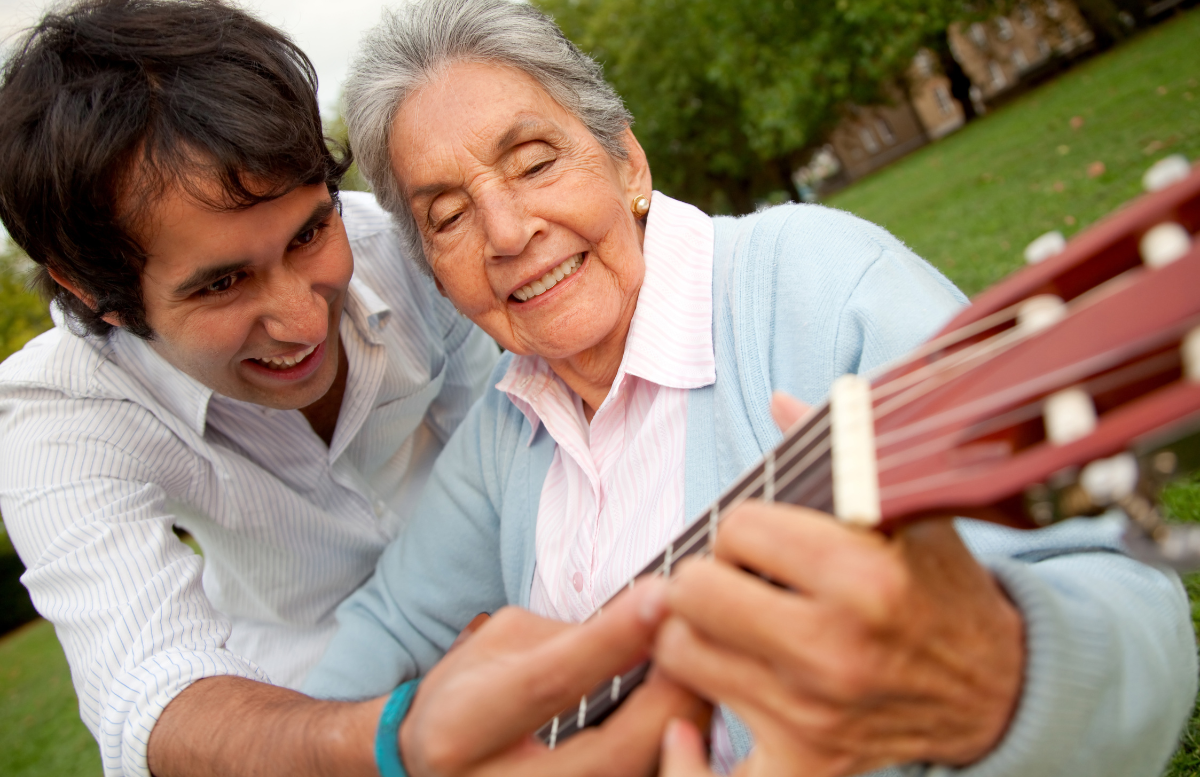
Music Therapy for the Elderly
Many elderly people who are in the middle to late stages of dementia frequently express a desire to “get home” or find a sense of belonging. They may have lost their sense of self and sense of control over their lives as a result of the disease process. We try to think of methods to bring out their personalities and the distinctive person that they are. One of the few things that simultaneously engages and stimulates the entire brain of our aging loved ones is music therapy for the elderly.
Engaging in music therapy has several advantages. People with dementia and Alzheimer’s are given a chance to communicate and express themselves when the spoken word may be lost through therapies like singing and playing an instrument.
One uses various neural pathways when singing and participating in other musical activities, which is frequently the cause of someone being able to sing an entire song but unable to speak.
Singing & Playing Music
Through singing and playing an instrument, a music therapist can assist someone suffering from dementia in developing such a pathway.
Here is a lovely illustration of the connection music can create in an instant. Most of Mr. Jones’ speech had been lost, yet he could still sing along to “Take Me Home, Country Roads” (a preferred song of his as he was originally from West Virginia).
After that, the couple was able to sing the song together and reconnect in a manner that they had not been able to do for a long time. He was not only able to connect with his wife through the spoken words that were sung, but he was also able to interact nonverbally with her while playing the paddle drum.
These additional advantages of music therapy also include:
- A person’s walking pace, balance, and control of their muscles and limbs are all improved by rhythmic auditory stimulation (RAS), which also improves a person’s balance.
- A metronome or a song with a fast rhythmic beat can be used for this. Singing well-known songs might increase life pleasure and memory recall.
- Participating in music treatments can also result in good changes in emotion or mood, which lowers stress, anxiety, and depressive symptoms.
- Seniors who participate in music therapy interventions may feel more in control of their lives as a result of a positive experience.
- Another non-pharmacological way to relieve pain is through music.
- The use of interventions like dancing and moving to music can help people exercise, improve their gross motor skills, and express themselves in new ways.
- Couples can also express their emotional intimacy through dancing.
- One can develop their fine motor abilities, including finger dexterity, by playing a percussion instrument like a shaker or tambourine.
- Overall, using music and music therapy services can increase an older adult’s sense of wellness and overall quality of life.
- Music therapy is a wonderful and effective technique to battle the isolation and loneliness that seniors suffer on a daily basis as we continue to live through a global pandemic. It is an essential type of therapy that has a favorable overall effect on seniors’ health and wellness.
As noted by neurologist Oliver Sacks, “Music is emotion, and emotion may evoke memory. Nothing else can restore the sense of life as it does.”
READ NEXT: The Benefits of Having Senior Transportation
